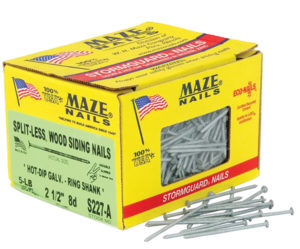Americans love hot showers. In fact, according to a nationwide survey of 800 participants conducted last year, 90 percent of homeowners consider hot water the one convenience they cannot live without. Propane-fueled tankless water heaters help ensure they never have to. Consumers across the country are realizing that propane tankless water heaters not only provide continuous on-demand hot water, but also substantial cost and space savings.
“Without a doubt, the number one benefit of propane tankless water heaters is the on-demand feature,” said Don Vandervort, president of HomeTips.com. “Because tankless water heaters don’t have a holding tank, water is heated on an as-needed basis, not heated and stored for hours like a traditional tank. This reduces energy loss from sitting water and also guarantees that you’ll never be cold if you’re the last one in the shower.”
The Propane Education & Research Council (PERC) is confident that tankless water heaters fueled by propane provide the most benefits, both long-term and short-term, to consumers who are considering purchasing a new system. Benefits of propane tankless water heaters include:
1.On-Demand Hot Water– A tankless water heater does not need a holding tank (i.e., storage tank). The unit heats water only as it is needed, or “on-demand.” Cold water travels through a pipe and past propane burners that heat the water instantly. The water is then delivered directly to household appliances and showers. This eliminates the need storage tanks, which can run out of hot water during peak usage times.
2.Cost and Energy Savings– On average, propane water heaters can cost one-third less to operate than comparable electric models. A specific benefit of the tankless system is that it eliminates what are called “standby losses.” The term refers to the energy lost through the walls of the tank and the fuel pipe. According to the U.S. Department of Energy, standby losses represent 10 to 20 percent of a household’s annual water heating costs. In addition, traditional water heaters must work allday to keep water at a constant temperature, whereas tankless water heaters only heat water when necessary. Also, tankless units have a life expectancy of 20 years, while traditional water heaters only last 10-15 years.
3.Space Savings– Tankless water heaters are powerful, yet compact. Most can be wall-mounted inside or outside of the home. Although sizes vary by manufacturer, the average tankless unit is about 24 inches high, 18 inches wide and 9 inches deep, which is significantly smaller than the traditional 40-gallon tank.
做法“电热水器由于丙烷是most logical choice for a homeowner interested in buying a new system,” said Jim Hitzemann, chairman of the Propane Education & Research Council’s Homebuilder Subcommittee. “The efficiency of propane added to the benefits of tankless technology will save money for consumers in the long run. Plus, the idea of on-demand hot water simply makes for happier households.”



